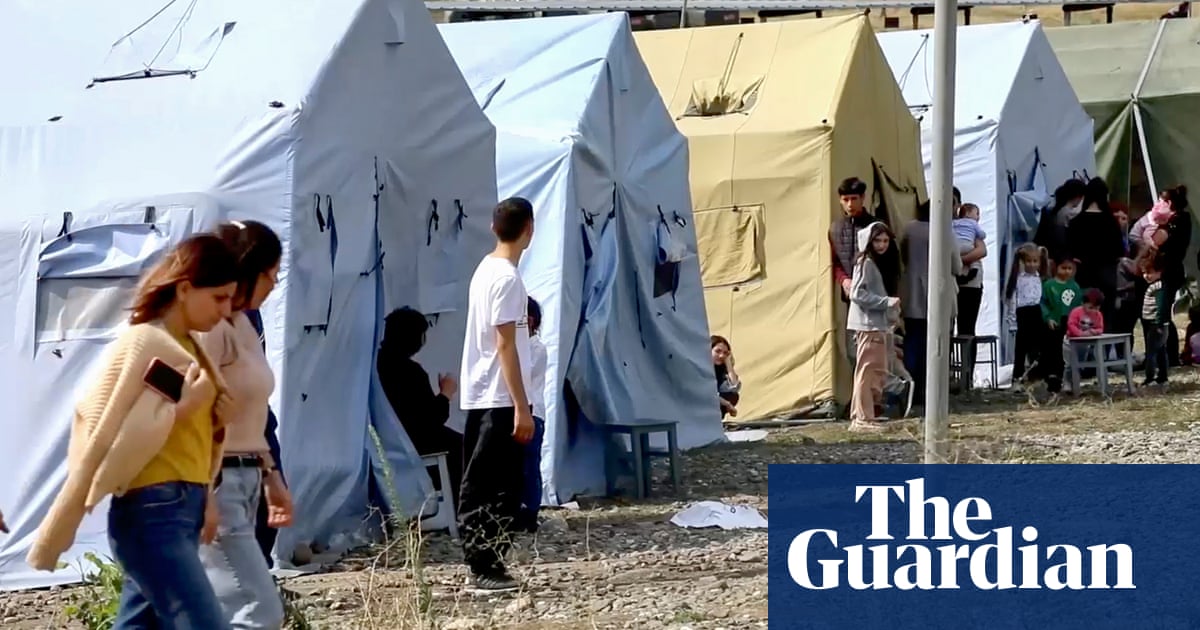
BAKU/YEREVAN (Reuters) - Hopes of ending nearly a month of bloodshed in the mountain enclave of Nagorno-Karabakh looked slim on Thursday as Azeri and ethnic Armenian forces fought new battles on the eve of talks in Washington.
Plans for U.S. Secretary of State Mike Pompeo to meet the foreign ministers of Azerbaijan and Armenia on Friday raised hopes this week that the two former Soviet republics would agree to end their deadliest fighting since the mid-1990s.
Russian President Vladimir Putin said he hoped that the United States would help Moscow broker a solution to the conflict.
“I very much hope that our American partners will act in unison with us and will help the settlement,” Putin told a meeting of the Valdai Discussion Club.
He added that he speaks to leaders of Armenia and Azerbaijan several times a day by phone.
But those hopes have been dented by the continued heavy fighting in and around Nagorno-Karabakh, a breakaway territory that is inside Azerbaijan but controlled by ethnic Armenians, and by angry rhetoric from both sides.
Hundreds of people have been killed since fighting flared on Sept. 27, raising fears of a wider war drawing in Turkey and Russia and increasing concern about the security of pipelines in Azerbaijan that carry Azeri gas and oil to world markets.
Putin said on Thursday Moscow believed that nearly 5,000 people had been killed in fighting between Azerbaijan and ethnic Armenian forces, with more than 2,000 dead on each side.
Nagorno-Karabakh said 874 of its military personnel had been killed since Sept. 27, in addition to 37 civilians. Azerbaijan says 63 Azeri civilians have been killed and 293 wounded, but has not disclosed its military casualties.
Armenian Prime Minister Nikol Pashinyan said on Wednesday he could see no diplomatic resolution of the long-running conflict at this stage.
In a transcript of comments to the Nikkei newspaper published on Thursday, Azeri President Ilham Aliyev said the prospects of reaching a peace settlement were “very remote”.
Reiterating Azerbaijan’s main condition for ending the fighting, Aliyev demanded promises that his country will be handed back control of Nagorno-Karabakh, which broke away as the Soviet Union collapsed.
“So our main objective at these discussions will be to find out whether the Armenian leadership is ready to liberate our territories or not, and if ready, then when?” he said.
Armenians regard Nagorno-Karabakh as part of their historic homeland and accuse Azerbaijan of making a land grab in the recent fighting.
Aliyev said he would not rule out “cultural autonomy” for ethnic Armenians in Nagorno-Karabakh but not say what he meant by this.
MORE FIGHTING
Russia has brokered two ceasefires since Sept. 27 but neither has held.
Azerbaijan reported fighting in several areas on Thursday, including territories near the line of contact that divides the sides.
It also said Armenia had fired three ballistic missiles at three regions inside Azerbaijan but Armenia denied this.
Armenia reported fighting in several areas, and Nagorno-Karabakh officials said the town of Martuni and nearby villages in the enclave had been shelled.
Azeri forces, bolstered by weapons bought from Turkey, say they have made territorial gains in the latest fighting, including full control over the border with Iran, though Nagorno-Karabakh says its forces have repeatedly repulsed attacks.
Turkey has said it would send soldiers and provide military support for Azerbaijan if such a request were made by its ally.
Putin said Russia disagreed with Turkey on Nagorno-Karabakh, but both countries needed to find a compromise. Turkish President Tayyip Erdogan “might seem tough, but is a flexible politician and reliable partner for Russia,” he said.
Pompeo said on Wednesday he still hoped a diplomatic solution could be found as the United States, France and Russia press on with mediation efforts they have led for decades.
He said the “right path forward is to cease the conflict, tell them to de-escalate, that every country should stay out”.












